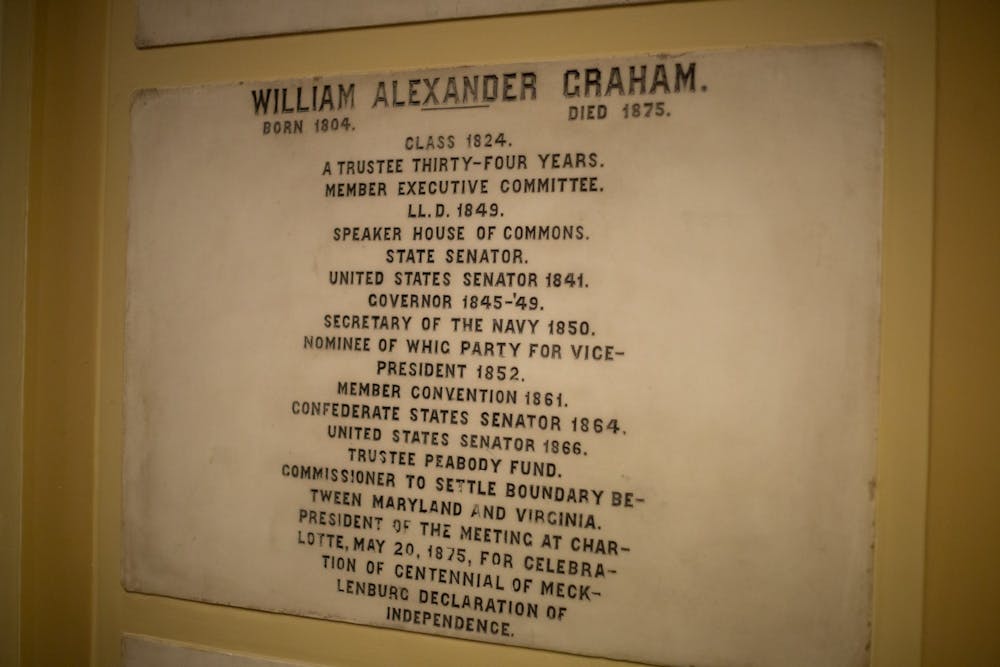On Dec. 20, 2019, Carolina Performing Arts released a statement on the UNC System's decision to provide the North Carolina Sons of Confederate Veterans (SCV) with a $2.5 million trust and the perpetual rights to Silent Sam.
In the press release, Interim Executive and Artistic Director and Chancellor Emeritus James Moeser said CPA is "appalled at the agreement entered into on our behalf by the UNC System Board of Governors," and said granting money from the earnings of UNC’s endowment "to an organization that is dedicated to a distorted and false version of history is an action contrary to this University’s search for truth."
In conversation, Moeser said the settlement strongly misrepresents the University, and as America’s first public university, UNC must acknowledge the sins of its forefathers.
“We carry the nobility of the American experiment in democracy, but also, slavery was America’s original sin, so we deal with the legacy of racism and white supremacy,” Moeser said. “It’s embedded in our history.”
CPA’s statement also recognized that much of the art produced and presented by CPA is “in a building filled with these reminders,” referencing the tablets in Memorial Hall memorializing Confederate alumni.
When Memorial Hall was rebuilt in 1931, it was dedicated to the memory of David Lowry Swain, the governor of North Carolina from 1832 to 1835, as well as to UNC alumni who died in the Civil War and World War I.
In 2005, Memorial Hall was “re-dedicated” by Moeser — who was chancellor at the time — to expand remembrance to all members of the UNC community who died serving their country, while also distancing the building from its Confederate ties.
Now, Moeser said he anticipates that Memorial Hall could become a locus for campus protest and conversation about racism because of the reminders of those ties.
“We have all kinds of plaques in the hallways that remind us of the founders of the University. Some of them are only identified as ‘John Smith, planter,’ and then there are other people who are identified clearly as people who are signers of the original charter, they’re important people,” Moeser said. “But on either side of the proscenium are memorial plaques to the alumni Confederate war dead."




